Matt Stone is doing an interesting series on the damage to the thyroid caused by eating too much muscle meat instead of the gelatinous materials found in the other half of the animal. Muscle meats and eggs are very rich in methionine, which increases our need for homocysteine-neutralizing nutrients (vitamins B6, B12, folate, betaine, and …
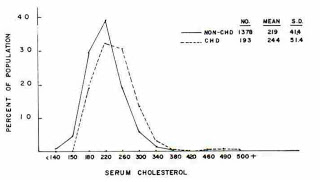
Genes, LDL-Cholesterol Levels, and the Central Role of LDL Receptor Activity In Heart Disease
Are high concentrations of LDL-cholesterol a major cause of heart disease? If we are a proponent of the “lipid hypothesis,” we say yes. If we are a “cholesterol skeptic,” we say no — total cholesterol, LDL-cholesterol, LDL particles, triglycerides, and other blood lipids have little or nothing to do with heart disease. I believe both of these positions …
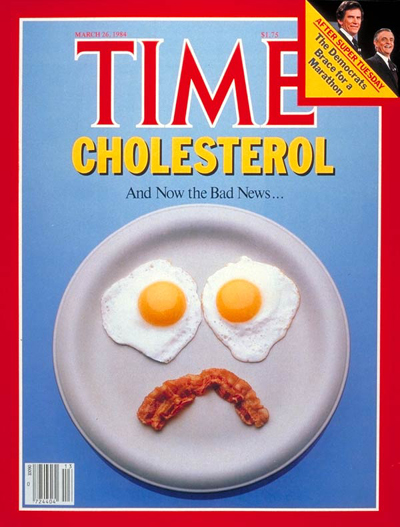
How Conflating the Lipid Hypothesis With the Diet-Heart Hypothesis Led to the Public Condemnation of Bacon, Butter, and Eggs
In my last two posts, I argued for the importance of distinguishing the lipid hypothesis, which holds that high concentrations of cholesterol in the blood cause heart disease, from the diet-heart hypothesis, which holds that high amounts of saturated fat in the diet cause heart disease. If you missed them, you can read them here: The Proper …
The Origin of the Lipid Hypothesis — And Proposal of a New Term
In my last post (The Proper Use of the Term “Lipid Hypothesis”), I traced the origin of the term “lipid hypothesis” to Edward Ahrens in 1976, who defined it as the hypothesis that reductions in blood cholesterol levels will lead to reductions in heart disease risk. This can be seen as a testable prediction of …
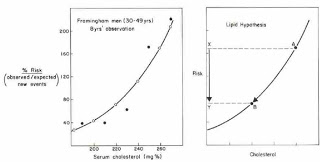
The Proper Use of the Term “Lipid Hypothesis”
There seems to be a lot of confusion about the meaning of the term “lipid hypothesis” in pop science books, blogs, and other places. Often times, the lipid hypothesis is confused with the diet-heart hypothesis. The two are very different. The lipid hypothesis concerns the role of lipids in the blood. The diet-heart hypothesis concerns …
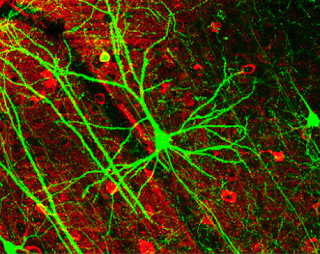
The New Genetics — Part IV: Who’s In the Driver’s Seat? How Cells Regulate the Expression of Their Genes
Who is in the driver’s seat? The gene, the cell, or the organism? It’s a complex question, and in a future post in this series, I’ll attempt to identify ideal metaphors we might use to understand this question. For now, I’d like to focus on how the cell utilizes its genes and controls their expression. …
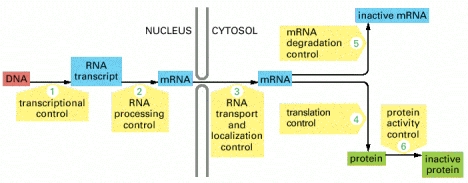
The New Genetics — Part III: Genes Don’t Express Themselves
Part III of The New Genetics If we are to understand the role of genes within a living organism, the first thing we must understand is that genes, by themselves, are inert. Put a gene in a petri dish with all the nutrients needed to make a protein and it will do nothing. Nada. Genes …

The New Genetics — Part II: Some Biological Heredity Is Neither Genetic Nor Epigenetic
Part II of The New Genetics. I feel bad for the gene. Why? Well first, just take a look at his face. Why is Gene so sad? I think it’s because we’re always talking about him behind his back, saying things like “it’s genetic” and, “so-and-so has the gene for _____.” Because we decided who …
Some Things I Like About “The New Evolution Diet”
My overall review of Art De Vany’s The New Evolution Diet probably came across pretty negatively, but there’s a lot of stuff I like about the book that’s worth summarizing. Unfortunately, many of the poorer ideas in the book shine forth with a brighter light simply because these good ideas have been discussed in many other …
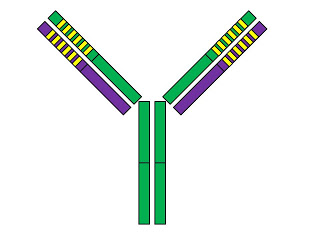
The New Genetics — Part I: How Our B Cells Create Their Own Antibody Genes
Among the cells of our immune system, the B cells make our antibodies. Each B cell makes a different antibody. We make an estimated one trillion different antibodies, giving us the capacity to respond to virtually any pathogen. Even more remarkably, each of these antibodies reacts with a variety of different antigens (an antigen is …